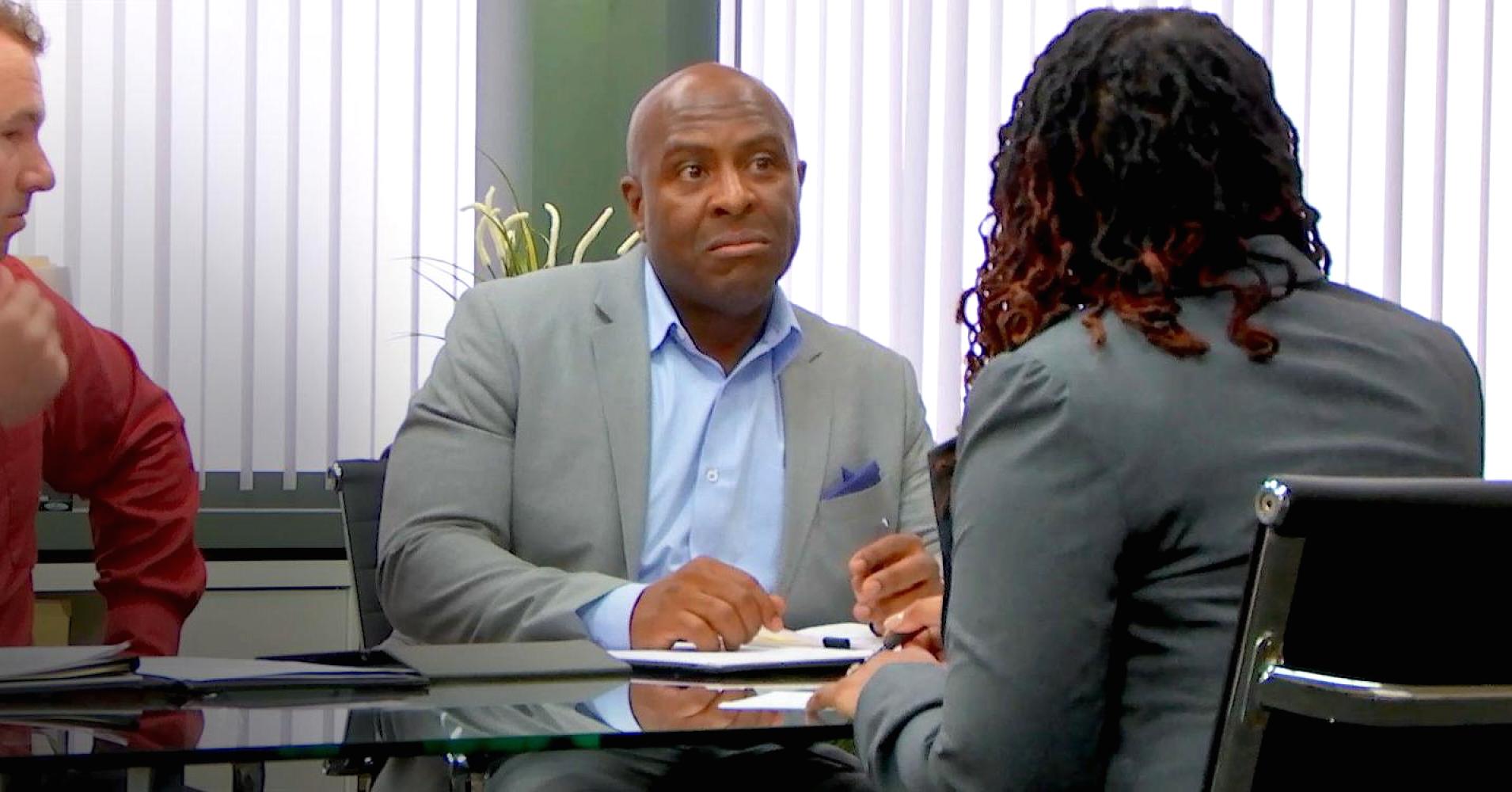
If you want to score a job, it’s important to consider how you carry yourself in an interview. In fact, your body language is just as important as what’s coming out of your mouth, says Barry Drexler, an expert interview coach with over 30 years of HR experience.
“You have to be conscious of how you’re moving your body,” says Drexler. “But a lot of people aren’t.”
Body language includes how you sit and whether you’re making eye contact, he says, and it can negatively impact how the interviewer judges your performance.
Here are the four most common body language mistakes that you should be aware of, according to Drexler:
“Number one: Do not sit on your hands,” says Drexler, noting that this is one of his top pet peeves. Even if you’re not sitting on them, don’t have them plastered to your side or hidden from view, he says.
During an interview, the applicant typically sits across a desk and faces the interviewer, explains Drexler. What often happens is that the applicant is so nervous or solely focused on what they’re saying that they will sit on their hands, clasp them tightly in their lap or sit rigidly with their arms by their sides. “People don’t move,” says Drexler. “They sit there, I swear, like a freaking robot.” But doing so makes you appear both stiff and uncomfortable, he says.
During an interview, Drexler advises that you use your hands to express yourself because it makes you appear more at ease, which then puts the interviewer at ease. “If you watch someone talk, they’re moving their arms,” he explains.
For example, if you’re talking about yourself, you can point to yourself. If you’re listing things, you can hold up a finger each time you state something. If you’re talking about the job or the company, you can gesture to the office. “But don’t be kooky about it,” warns Drexler. “Do it when you need to.”
“There’s something I call ‘face talk,'” says Drexler. “Your face talks [and] it tells a story.”
This means that if you’re feeling bored during an interview, the interviewer can likely “read” your emotion based on your facial cues. “The worst is when I’m speaking, they look distracted, they’re not even interested in what I’m saying, their face is blank, there’s no emotion,” explains Drexler.
To see just how easily your face can sabotage you, imagine that you’re meeting someone for the first time. “How long does it take you to tell the person isn’t interested or they’re distracted? A millisecond,” says Drexler. “We’re all intuitive when we meet people. You know when they’re interested in what you’re saying and when they’re not.” Interviewers are not different, he says.
Although interviewers relay a lot of background information about the company or the role that you may not find compelling, it’s important that you show interest even if you’re faking it, advises the interview coach.
“Make sure your face tells a story [and] that your face is saying that you’re attentive, you’re engaged, you’re interested, you’re excited,” says Drexler. “So your eyes light up, you smile, you tilt your head.”
When speaking with an interviewer, you want them to be engaged, says Drexler. This makes both you and your interview memorable. However, people often make the mistake of sitting with their backs to the chair and leaning away from the interviewer, he says, which makes them appear closed off.
Instead, you should be leaning forward to show that you’re invested in the conversation, says Drexler, especially when answering questions that put you on the defensive. For example, an employer will often challenge an employee by asking, “Why should we hire you?”
For questions like this, you “definitely throw your body into it” and lean forward, says Drexler. “You don’t want to be sitting back when you answer that one,” he adds. “You want to make a point.”
Another instance is when you’re describing your background and experience. “If you want to emphasize that you did exceptionally well, you lean in a tiny bit, your face lights up and you [show] that you’re proud of yourself,” he says.
When candidates are feeling unsure of themselves, says Drexler, they often look toward the floor. He typically sees interviewees demonstrate this bad habit when discussing past jobs that didn’t end well.
For example, a candidate who abruptly left a company after a few months would likely be asked to explain why. If they were fired or had a negative experience, says Drexler, it transfers to their body language. “The head tilts down, the voice drops off, the whole body says something is up.”
But Drexler says it’s important not to look dejected even when discussing a negative circumstance. Instead, you want to sit with your back straight, look up toward the interviewer and demonstrate “powerful” body language.
“You want to have a comfortable open stance,” he adds. “Shoulders should be back and strong.”
Like this story? Like CNBC Make It on Facebook.
Don’t miss: These 12 ‘powerful’ words will help you ace your next job interview
